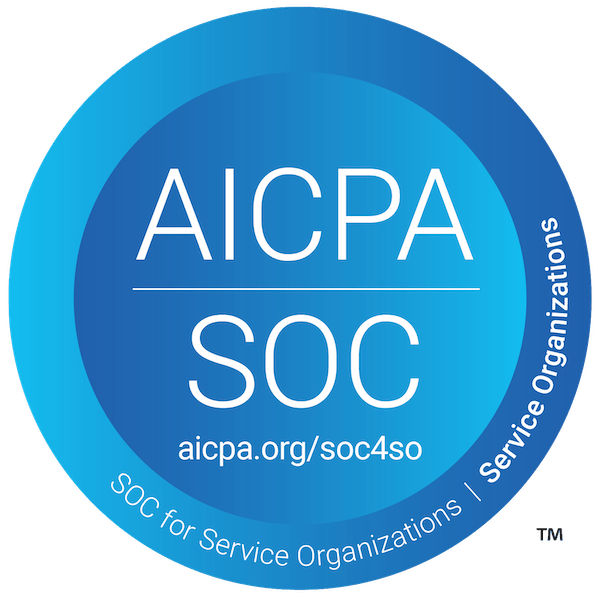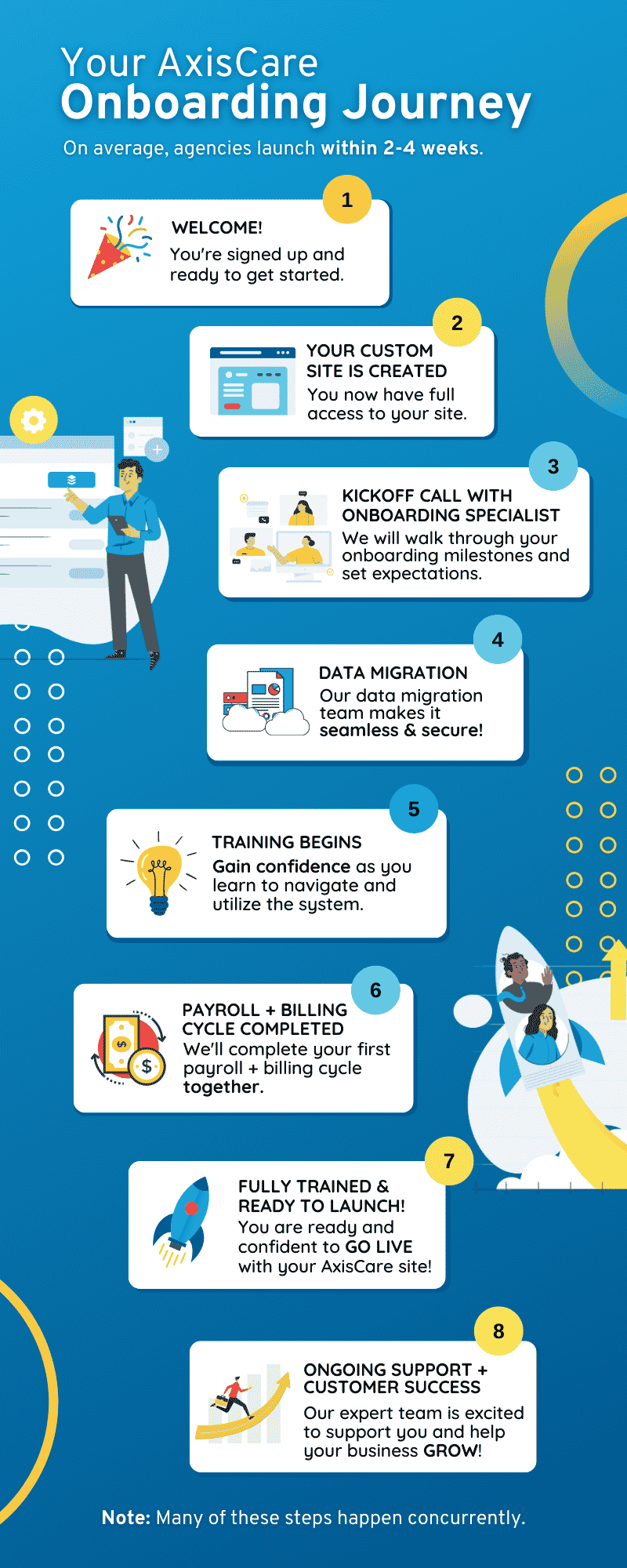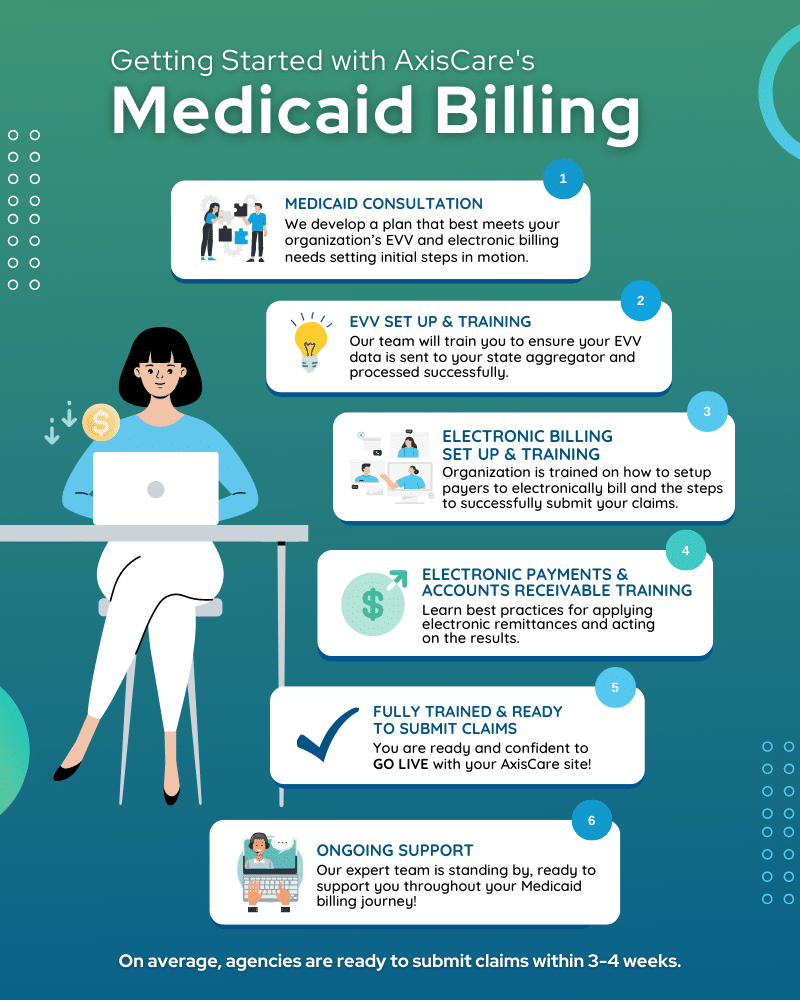As the demand for home-based care continues to rise, it is important for healthcare systems and providers to adapt their services, leverage technology, and prioritize person-centered care to meet the evolving needs of individuals seeking care in their homes.
Why is Home Health Care Important?
Home health care has emerged as a key player in the health care system, particularly regarding the aging population. Home health care has experienced substantial growth in recent years, driven by demographic shifts and technological advancements. Elderly and chronically ill individuals are now voicing a preference for receiving care in the comfort of their homes, as it offers personalized care tailored to their unique needs and promotes their independence. Technology has been instrumental in this shift, with innovations such as telemedicine, remote patient monitoring, and advanced medical equipment designed for home use, making it possible to deliver treatments at home. These developments have not only improved the quality of care but also made it more accessible to those who need it.
At-Home Care Services Growth
At-home care services play a pivotal role in maintaining overall health and enhancing the quality of life of individuals and their families. They provide a sense of security and comfort, lessen the emotional burden on families, and ensure that loved ones receive comprehensive, personalized care, fostering a nurturing environment that promotes health and well-being, hence the recent boom in these services.
1. Aging Population and Preferences
According to the AARP, nearly 90% of seniors prefer to age in place, staying in their own homes and communities as they grow older. This desire is driven by the comfort of familiarity, independence, and emotional ties to homes. Choosing home health care allows individuals to maintain their independence and avoid the stressful transition to institutional care settings.
Decline in Physical and Cognitive Functioning
As individuals age, they are more likely to develop chronic health conditions and experience a decline in physical and cognitive functioning, making familiar surroundings such as their homes preferred.
Complex Care Requirements
Older adults often have multiple health conditions and may require coordination among various healthcare providers; having a central location for care administration makes the process for family members easier.
2. Cost-Effectiveness
Home-based care can be more cost-effective than institutional care settings such as nursing homes or assisted living facilities. Home-based care allows individuals to receive the necessary care in their own homes, eliminating the need for transportation and room and board fees associated with institutional care settings.
3. Advancements in Medical Technology
Technological innovations have proven instrumental, empowering caregivers to administer personalized, effective, and timely care, thereby enhancing the quality of life and health outcomes for individuals in the comfort of their own homes. Here are some recent tech advancements and how they assist caregivers:
Remote Patient Monitoring
Remote patient monitoring allows healthcare professionals to track patients’ health remotely, detect changes or potential issues early on, and provide timely interventions, reducing the need for hospitalizations and in-person visits.
Telemedicine and Mobile Applications
Mobile applications and telehealth platforms facilitate virtual visits, appointment scheduling, medication reminders, and health education, enhancing patient engagement and access to care.
EVV Software
EVV software helps streamline visit verification, reduce administrative burden, and enhance transparency in home-based care delivery.
AI and Robotics
AI-powered algorithms can analyze patient data, predict health trends, and provide decision support to healthcare professionals. Robotics can assist with tasks such as medication reminders, mobility support, and fall detection, further improving safety.
4. Quality of Life and Personalized Care
Home-based care provides personalized and individualized care plans that cater to each patient’s unique needs. Agencies can utilize home care software to create detailed and tailored care plans, ensuring caregivers are equipped and knowledgeable about their patients’ unique needs.
Stronger Family Relationships
Home health care fosters healthy family relationships by relieving families of continuous care responsibilities but still allowing them to participate in decision-making and care planning. Furthermore, it allows families to spend quality time with their loved ones, focusing on shared experiences and emotional connections rather than the intricacies of medical care.
Greater Patient Satisfaction
By involving patients in their care plans and considering their unique circumstances, caregivers can tailor their services to align with individual preferences, routines, and cultural values, ensuring that their care is not one-size-fits-all.
Higher Quality of Life
By receiving care in their own homes, individuals can maintain their familiar routines, engage in activities they enjoy, and have a sense of independence and control over their lives.
The Promising Future of Home-Based Care
The future of home health care holds immense promise, with factors such as recent technological advancements, personalized care delivery, and increased demand. As more individuals express a preference for aging at home, the industry must adapt and innovate to meet these evolving needs, enhancing care delivery and improving patient outcomes. As we move forward, the home health care landscape is set to transform healthcare delivery, ushering in a new era of personalized, patient-centric, and efficient care right in the comfort of one’s home.
Start With AxisCare
Our technology-driven, innovation-focused home care software puts patient care at the forefront, ensuring the efficient delivery of personalized and timely care. At AxisCare, we are devoted to improving patient outcomes, reducing caregiver stress, and facilitating seamless care coordination. Book a demo to learn more about how AxisCare can empower your staff to provide the best possible care.











